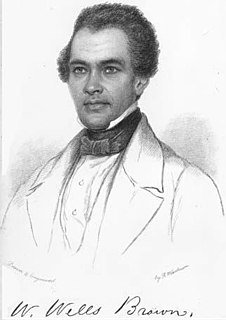A Quote by William Wells Brown
Though slavery is thought, by some, to be mild in Missouri, when compared with the cotton, sugar and rice growing states, yet no part of our slave-holding country is more noted for the barbarity of its inhabitants than St. Louis.
Related Quotes
As a kid growing up St. Louis, Missouri, I lived in a predominantly black neighborhood. Any time people talked about slavery, it was always something like, 'If I was a slave, I wouldn't have been putting up with that. I would have been out in a heartbeat.' And it's like, sure, it's a very easy thing to say.
Do I want to be in St. Louis forever? Of course. People from other teams want to play in St. Louis, and they're jealous that we're in St. Louis because the fans are unbelievable. So why would you want to leave a place like St. Louis to go somewhere else and make $3 million or $4 more million a year? It's not about the money.
I had ancestors who were slave-holders, which is a difficult piece of family history to say the least. In a recent New York Times article on the subject of modern attitudes toward our slave-holding past, the writer noted that we all want to be from "innocent origins." I _know_ I'm not. Then again, I suspect most of us are not.



































